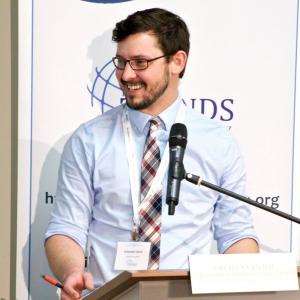You are invited to the third monthly meeting of the Global Security Hub. This months working paper will be presented by Dr. Brad LeVeck, Assistant Professor of Political Science at the University of California, Merced. Dr. LeVeck’s work focuses on the role that information and cognition play in strategic decision-making.
His work has been published in the American Political Science Review, PNAS, International Organization, and International Studies Quarterly.
Democratic Peace and the Wisdom of Crowds: A Theory and Experimental Evidence of Collective Intelligence in Ultimatum Bargaining
The well-established democratic peace finding that there are few, if any, clear cases of war between mature democratic states has generated a great deal of scholarly interest. In this paper, we propose a new theory for the democratic peace that highlights a previously unexplored advantage that democracies may have in crisis bargaining. Specifically, we argue that the diverse collection of independently-deciding individuals characteristic of democratic states is likely to produce better, more accurate predictions about the reservation price (i.e. the capabilities and resolve) of an opponent than individual leaders or even military experts in situations of ultimatum bargaining. As a result of this collective intelligence, we expect that bargaining with a group of diverse decision-makers will not only fail less often in the first instance (the original democratic peace finding), but that groups will also converge on an opponent?s reservation price more quickly in situations of repeated play, and that larger groups will outperform smaller groups with respect to the rate at which their offers are accepted and the value of their settlements over time. In order to test these expectations and distinguish our mechanism from existing theories of the democratic peace, we use experimental data where subjects engage in multi-round ultimatum bargaining games. We compare the performance of offers from individuals to the performance of aggregated offers from diverse groups of individuals. We find strong support for the idea that collective decision-making decreases the likelihood of bargaining failure.
About Dr. Brad LeVeck
Brad LeVeck is Assistant Professor of Political Science at the University of California, Merced. He earned his Ph.D. in 2012 from the University of Californai, San Diego.
LeVeck’s research uses experiments and mathematical models to examine strategic decision-making in politics. Much of his recent research has focused on the causes and consequences of “collective wisdom” in democracies. Sometimes groups, such as parties, committees, and electorates are able to make better decisions than any one individual. Yet, there are other instances where the same groups “herd” towards terrible decisions. Why? What can be done to promote better collective decision-making?






